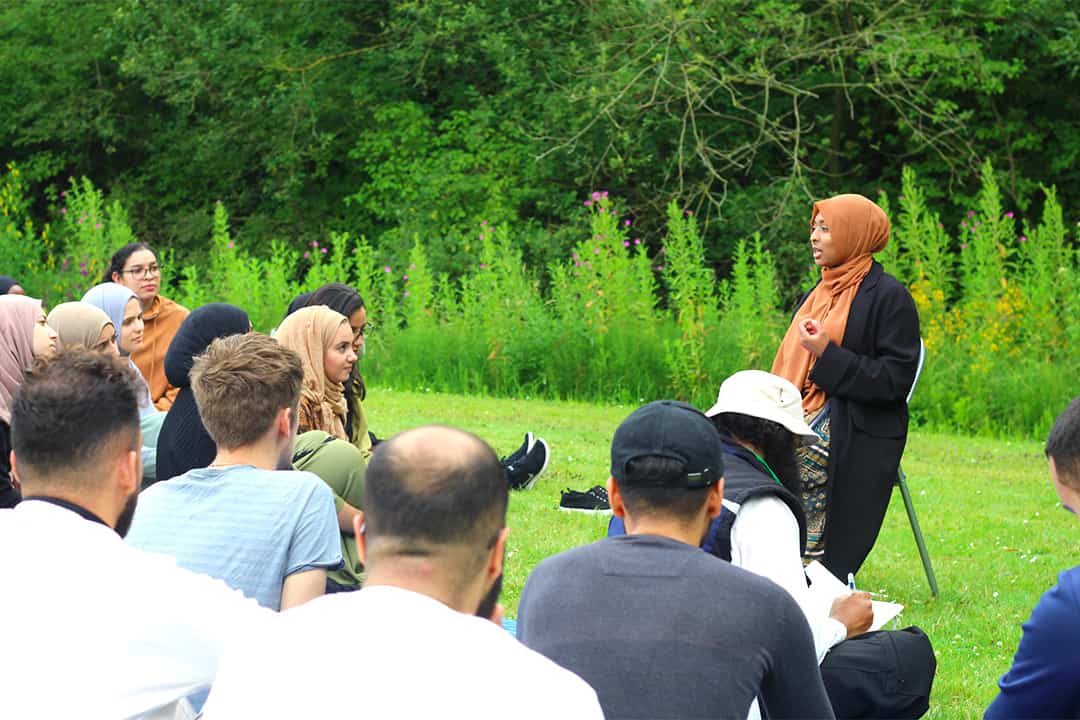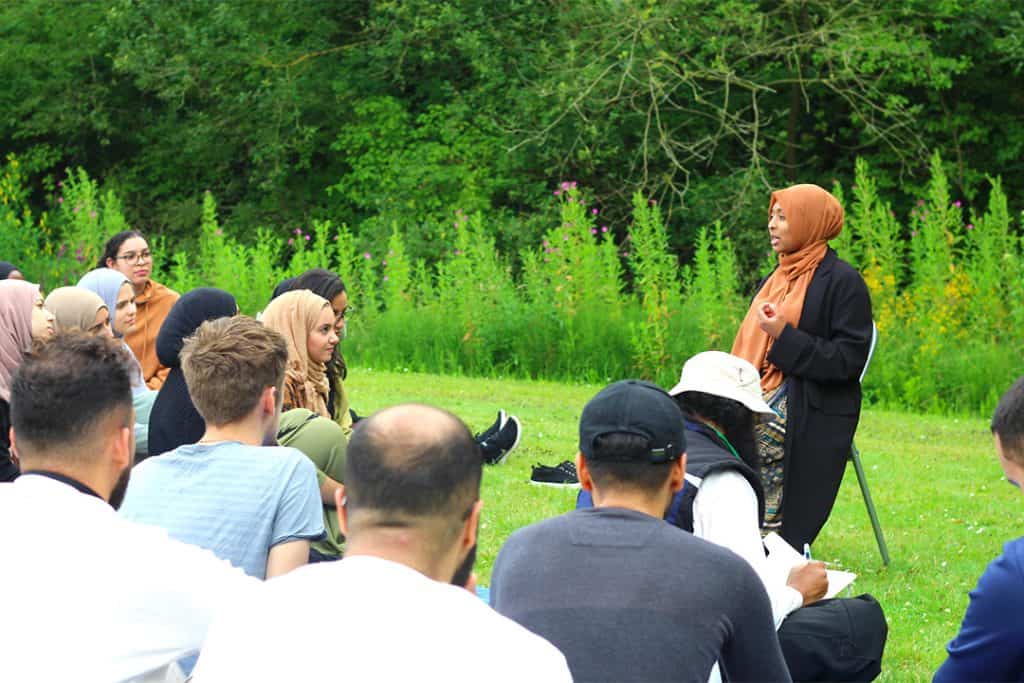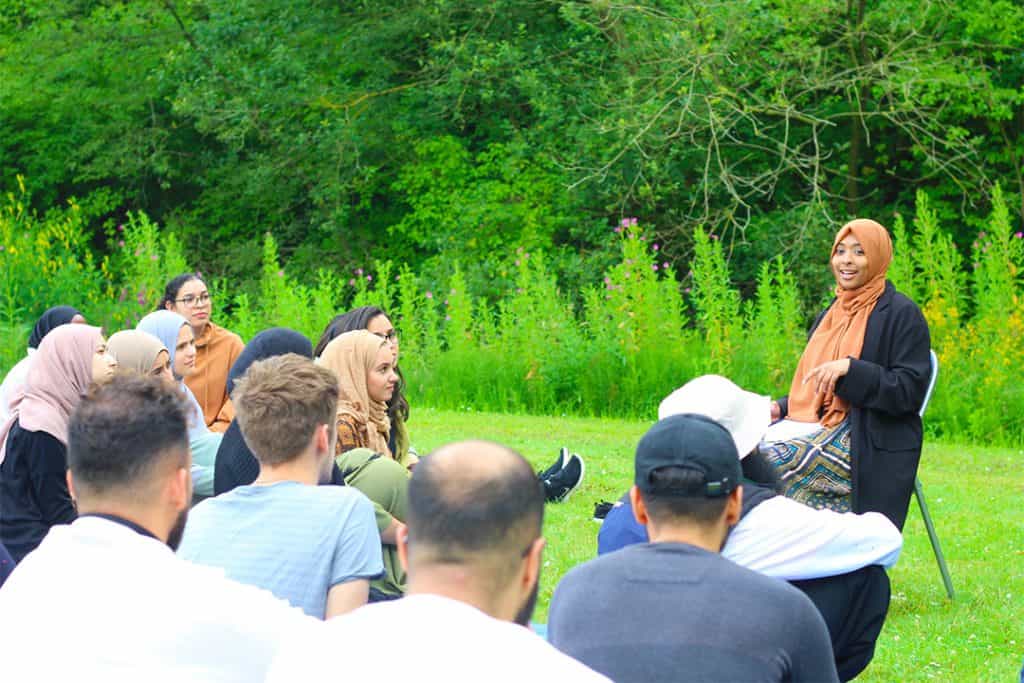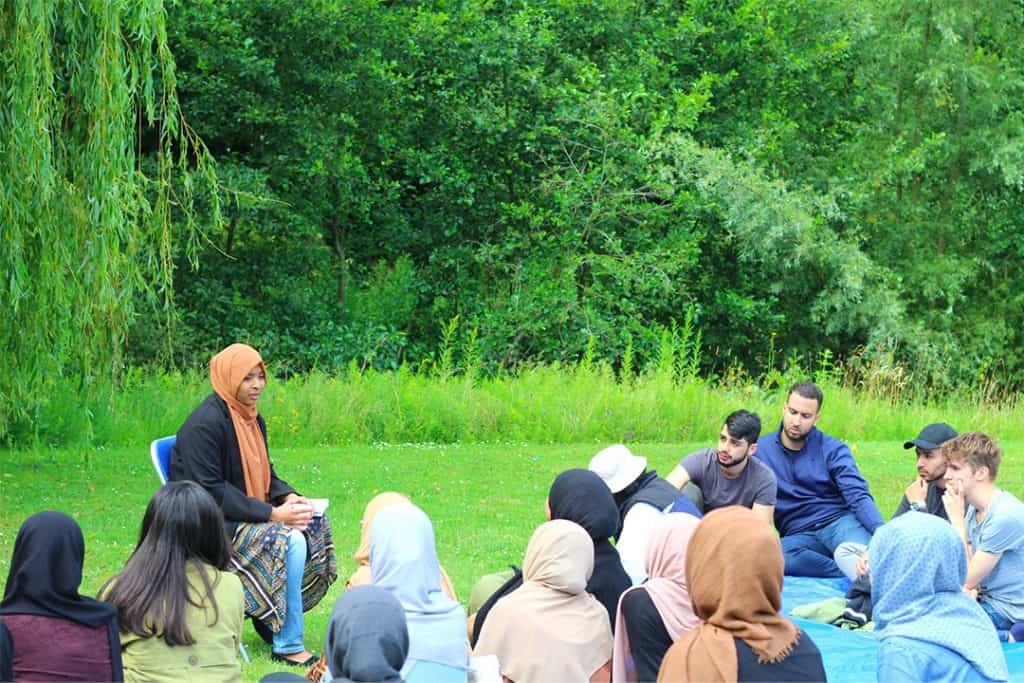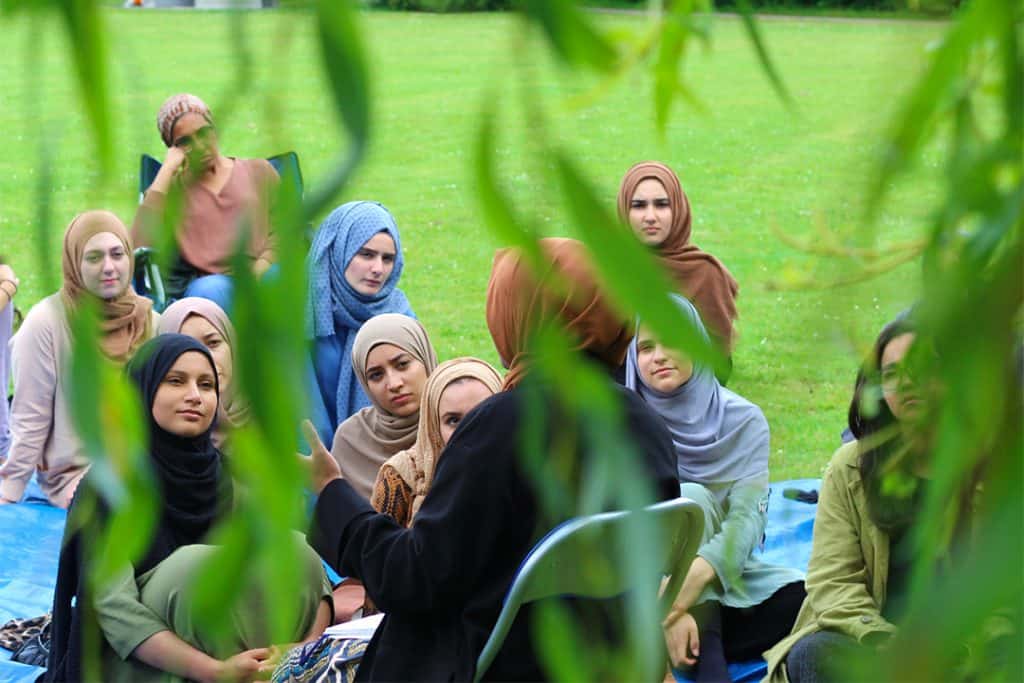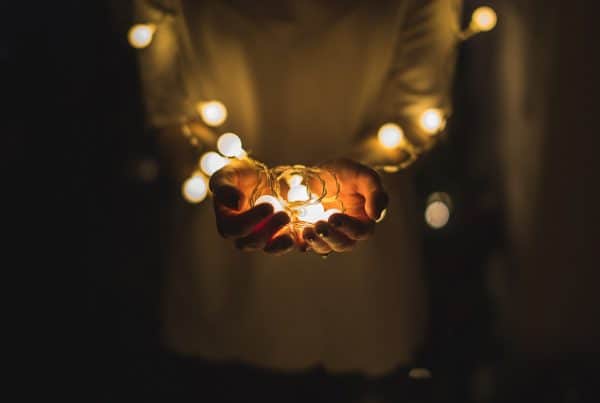Inspirited Minds was invited to speak for an hour to 40 students of the Student Association IDEE as part of their one-day ribaat which was held in a nature park. The aim of the talk was to discuss the importance of reflection, contemplation and khalwa (spiritual seclusion) from the dunya as well as focusing on one self, their mental health and their relationship with Allah.
It was an exciting and novel experience where we were surrounded by nature and the students were engaged in topics revolving around mental health and how to take care of themselves using Islamic practices. In particular, I noticed that the men and women ratio in the audience was equal and the men were significantly engaged as they had asked intriguing questions. This gave me the impression that they were curious and were not worried about asking questions about mental health – something that is not commonly observed in mental health related workshops in the UK amongst Muslim men.
I was honoured to speak on behalf of Inspirited Minds internationally and I’ve learnt several things from this experience.
Mental health difficulties are still common in the Muslim Community abroad.
There is a similar cultural stigma associated with mental health alike to the one across different Muslim communities, but one that is common is the misunderstanding between whether someone is afflicted by Jinns or Sihr and how to identify what is mental health and what isn’t.
Mental health isn’t mutually exclusive to human existence. Rather it exists alongside with physical, psychological and spiritual health.
May Allah shower his barakah in the hard work that the Student Association IDEE do and may He give them the ability and success to bring comfort to the Ummah in a way that pleases him. Ameen.
Top tips for students:
- Take a step back from stressors, by stepping into nature and appreciating and reflecting on the beautiful creation of Allah. The Prophet (SAW) used to spend time during Fajr prayer looking at the sky reflecting on Surah Al-Imran Verse 190 “Indeed, in the creation of the heavens and the earth and the alternation of the night and the day are signs for those of understanding”.
- Find one thing that you are grateful for today, including what you can see, hear, feel, taste, and smell. Reflecting on the smallest of things is something we take for granted on a daily basis.
- Reach out to Allah when facing struggles through sincere dua by using His names and also approach someone who you trust to support you.
If you would like to get involved in raising awareness about mental health in your local community, we are looking to grow our Outreach Team to different cities around the country. We will ensure that you are fully trained and confident before running workshops and talks. Please visit our vacancies page for more information.

